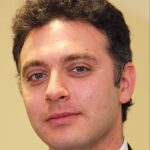
Read the articles in this month’s Life and Times and try reflecting on them. Go on. I dare you. How are you — and how is what you do — changed by what you have read? While the mandatory reflection that haunts medical education and appraisal in the UK creates a sense that this is onerous, intrusive, or frankly boring, reflection has an ancient and respectable pedigree. Born in 551 BC, Confucius was a Chinese teacher and philosopher whose principles can still be applied. He argued, ‘By three methods we may learn wisdom: first, by reflection, which is noblest; second, by imitation, which is easiest; and third by experience, which is the bitterest.’1
Reflecting on research and what it could mean in practice
Nada Khan channels GPs’ collective trepidation when faced with a patient who arrives clutching a newspaper (with a health story) and asks for a new medication or questions the safety of an existing one because of it. Is there a duty of care to report health stories in the media responsibly? How clued up should those in clinic be about what’s in the news this week?2
Alex Burrell looks at academic articles on repeat prescriptions for antibiotics, co-locating drug substitution with other health services, autism diagnosis (could it be done by GPs?), and what affected medical students’ motivation in pandemic lockdowns. He gives a brief summary and a realist one-line reflection on each, inviting us to consider these for ourselves.3
Creative writing as a path to wisdom in a ‘hard week’
William Roberts reflects that his medical school reflections have been critiqued as ‘detached’ accounts of things happening. He spent time with me doing a self- selected component in ethics education, and here ‘reflects’ on a day spent on creative writing and medical ethics. Writing fiction is offered here as a ‘safe’ way to explore difficult decisions.4 Frances Wedgwood marries creative writing with personal experience to demonstrate an ‘inverse care law’ in GP training.5 Those with less support needs have better training environments, while those who are most in need of support end up training in the most challenging, deprived areas.6
We also showcase two examples of poetry from the GP frontline. The very titles, I’m Running Late, by Emily Bean,7 and Reflection On My Practice, by Terese Tubman,8 should send a chill down the spines of British GPs. Poetry offers a potent way of sharing the immediacy and felt sense of an experience. We should not discount it.
Reflecting on the ebb and flow of life, and the manner of its passing
Ben Hoban invites us to consider that illness is something normal, to be borne while the pendulum of life swings one way in expectation that it will soon swing back again. It is easy for us to claim credit as doctors, even though we know that many problems get better by themselves. He invites us to reflect on ways of going with the flow.9
Mark Wallace reflects on the passing of his brother, Paul, who was diagnosed with an aggressive locally advanced prostate cancer. Paul was under no illusion about his prognosis and from an early point he openly discussed what his future was likely to hold. Mark describes what a good death should look like and how we might enable it.10
Reflecting on political realities
Thomas Oswald questions the speed with which physician associates (PAs) have been rolled out in primary care as an alternative to GPs, and wonders why the high profile debates have chiefly involved the Royal College of Physicians rather than the Royal College of General Practitioners. In the face of worsening employment prospects for GPs, he challenges the idea that PAs are there to ‘help’ rather than ‘replace’ GPs.11
Being well-informed is a precondition to effective participation in politics, whether as a voter or a patient advocate. Our book review from Terry Kemple this month is on Follow the Money: How Much Does Britain Cost? When we have those conversations that begin, ‘They should …’, we can be a little clearer about who ‘they’ are and what effect their proposed policies might actually have.12
What now?
John Driscoll famously described reflection as involving three ‘Whats’: What happened? So what? What now?13 Reflect on these articles and consider sharing your insights, whether in an e-portfolio, or with us at https://www.bjgplife.com.
References
1. Kan Q. 12 famous Confucius quotes on education and learning. 2019. https://www.open.edu/openlearn/education/12-famous-confucius-quotes-on-education-and-learning (accessed 17 May 2024).
2. Khan N. The media, healthcare messaging, and the doctor–patient relationship. Br J Gen Pract 2024; DOI: https://doi.org/10.3399/bjgp24X738345.
3. Burrell A. Yonder: Repeat antibiotics, co-located drug services, autism diagnosis, and medical student lockdown motivation. Br J Gen Pract 2024; DOI: https://doi.org/10.3399/bjgp24X738441.
4. Roberts W. Creative writing in medical ethics: reflections on reflective practice. Br J Gen Pract 2024; DOI: https://doi.org/10.3399/bjgp24X738357.
5. Hart JT. The inverse care law. Lancet 1971; 1(7696): 405–412.
6. Wedgwood F. A tale of two doctors: casualties of an inverse education law? Br J Gen Pract 2024; DOI: https://doi.org/10.3399/bjgp24X738333.
7. Bean E. Poems: I’m Running Late. Br J Gen Pract 2024; DOI: https://doi.org/10.3399/bjgp24X738405.
8. Tubman T. Poems: Reflection On My Practice. Br J Gen Pract 2024; DOI: https://doi.org/10.3399/bjgp24X738417.
9. Hoban B. Falling off the swing. Br J Gen Pract 2024; DOI: https://doi.org/10.3399/bjgp24X738393.
10. Wallace M. A charter for dying. Br J Gen Pract 2024; DOI: https://doi.org/10.3399/bjgp24X738381.
11. Oswald T. Physician associate deployment in primary care: running before walking. Br J Gen Pract 2024; DOI: https://doi.org/10.3399/bjgp24X738369.
12. Kemple T. Books: Follow the Money: How Much Does Britain Cost? Br J Gen Pract 2024; DOI: https://doi.org/10.3399/bjgp24X738429.
13. Driscoll J. Supported reflective learning: the essence of clinical supervision? In: Practising clinical supervision: a reflective approach for healthcare professionals. 2nd edn. London: Baillière Tindall, 2007; 27–50.
Featured photo by Benoit Debaix on Unsplash.






